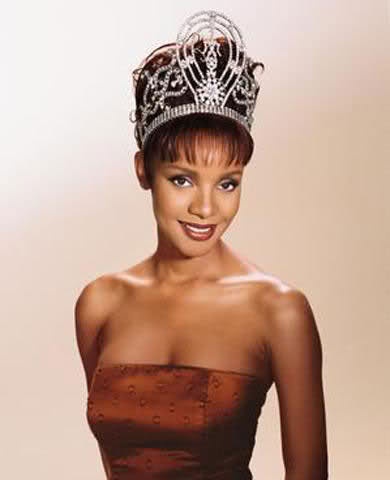THIS TIME FOR AFRICA!
By Uno Rodriguez
Is there something wrong with African women? Or maybe there are reasons behind this?
In our search for answers, it is wise to dig first into the history of this pageant as well as the cultural background of the people within the Miss International Organization.
Black beauties and the Japanese stereotype
Miss International originated in Long Beach, California, USA in 1960. From 1968 to 1970, Japan hosted this pageant and after a year, from 1972 until present, Japan has been the home-base of this pageant.Are the Japanese the reason why a queen from Africa hasn’t won Miss International yet?
Based on a study, most Japanese stereotype the “blacks” differently. What are their basis?
There are many TV programs which implant bad stereotype of other countries or races. In an article I read few years back, some Japanese people have stereotypical images of black Americans, gleaned from American television and press accounts. Black people are often described like with black skins, dangerous, funny, strong or lazy. We are not trying to say that these descriptions are all true but media can sometimes affect their viewers.
Part of the article had mentioned that a lot of Japanese people believe Japan is a homogeneous nation. That they sometimes do not accept foreigners. There is this belief that because black people look totally different from the Japanese and they don’t speak Japanese well, it is assumed that they are disliked.
So from there, can we formulate that because most judges at the finals of Miss International are Japanese, then no black woman of African heritage may win?
Actually, it is a wrong notion. There are quite a few young Japanese who love the black culture, be it like hip-hop, dances or clothing style. Japanese even go to some hiyake salon to burn their skins. Why? Because they want to look like black people. So there is this rising trend among Japanese that revere the black culture to the point of imitation. There should not be any issue about Japanese being racist against black people just because they have not crowned any African woman yet.
Africa at Miss International
To date, since it’s participation in 2012, Gabon is the only African country who is consistent in sending a delegate. They are even sending their national winner to compete. The best placement of Africa at Miss International was in 1996, courtesy of Ibticem Lahmar from Tunisia. The last time that a black African had placed as a semifinalist in Miss International was in 2012, courtesy of Paulina Malulu from Namibia.
Black winners at BIG4 pageants

In a monumental year, debuting at Miss Universe, a “Black to Black” crowning happened. This time for the first time, a black queen from Africa was hailed Miss Universe 1999 through Botswana’s Mpule Kwelagobe. In 2011, Angola’s Leila Lopez won Miss Universe, thus becoming the second black African to win the Miss Universe crown.
Dating back from 1954, Egypt was crowned as the 4th Miss World winner. It was followed by South Africa in 1958 with Penelope Anne Coelen. But the first woman of color to ever won Miss World was in 1970 when Jennifer Hosten of Grenada ousted a black woman from South Africa, Pearl Jansen. In 1973 when Miss USA Helen Morgan resigned, South Africa’s Anneline Kriel assumed the title. Another win for Africa but, she was not black.
Other notable women of color who won Miss World are Giselle Laronde of Trinidad and Tobago (1986) and Lisa Hanna of Jamaica (1993). It took a while before Miss World finally crowned a black woman from Africa and it only happened in 2001 when Agbani Darego won the crown for Nigeria.
Do you think Miss International should crown a black African woman so that it can attract many African countries who are discouraged to join? Or crown Miss Egypt who represents the light colored women of Africa? Will it motivate the African countries to consider Miss International as a serious pageant with it’s relevant mission, vision and purpose?
In the second year of Miss Earth, after the dethronement of Džejla Glavović from Bosnia & Herzegovina, Kenya’s Winfred Omwakwe assumed the title, and is still recognized as the official Miss Earth 2002 queen. This year, the 14-year-old pageant has fourteen (14) African countries expected to compete in Manila on November 29th. They are Botswana, Egypt, Gabon, Ghana, Kenya, Madagascar, Mauritius, Namibia, Nigeria, Réunion Island, South Africa, Tanzania, Zambia and Zimbabwe.
Conclusion
Is it time for Miss International to market and penetrate the African region by crowning either Egypt, Gabon, Mauritius, or Zambia this year? Well, only time can tell.
About the author:Uno Rodriguez is a resident pageant expert of Missosology who is based in Paris, France.He has written several blog entries and pageant analysis of the BIG 4 Pageants.












Comments are closed.